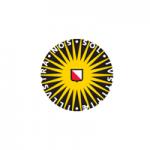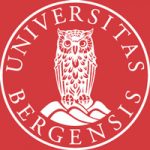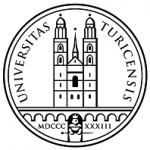项目介绍
The Department of Earth Sciences is looking for a highly motivated PhD candidate with a MSc background in Earth Sciences, Geochemistry or other appropriate fields.
Your job
The origin of life remains one of the greatest mysteries in science. While many theories have been proposed, no single explanation has yet gained universal agreement. That’s where the PRELIFE consortium comes in. PRELIFE unites experts across a wide range of disciplines from astronomy, biology, chemistry, computer science, earth and planetary sciences, education, mathematics, to physics. Together we will explore two fundamental questions: How did life emerge on Earth, and how common are the conditions elsewhere in the universe?
To answer these profound questions, we will take an interdisciplinary approach, bringing together diverse perspectives to unlock new insights. But we believe this question is not just for scientists, it is for everyone. That’s why we will invite teachers, students, and the public to join us, through educational programs, artistic collaborations, and museum partnerships.
We’re searching for answers to life’s biggest questions, and we need your help. As part of the PRELIFE program we offer 15 exciting research projects. Are you a student with deep expertise in your field and a passion for crossing disciplinary boundaries? Each project connects different scientific fields, working together to unlock the secrets of life’s origins and take the public along. Are you in?
The Department of Earth Sciences is looking for a highly motivated PhD candidate with a MSc background in Earth Sciences, Geochemistry or other appropriate fields. You will work on the project “Constraining Hadean ocean geochemistry”. In this 4-year study, you will work on the question how silicate weathering developed on the early Earth in dependence of continental growth and how geochemical mineral-water reactions controlled the composition of the first ocean. These processes involve forward weathering (dissolution of primary minerals) and reverse weathering (precipitation of authigenic secondary clays and carbonate precipitation). You will conduct laboratory flow-through experiments to simulate different ambient conditions and various fluid and mineral compositions. Identification of reaction pathways will be done via fluid and solid element as well as stable isotope (Si, Fe, Mg) analyses and thermodynamic modelling. Your findings will be complemented by the outcomes of the other PRELIFE projects, in order to answer the question under which conditions life evolved on Earth (see also: https://www.originscenter.nl/prelife/).
A personalised training programme will be set up, reflecting your training needs and career objectives. About 20% of your time will be dedicated to this training component, which includes following courses/workshops as well as training on the job in assisting in the Bachelor’s and Master’s programmes of the department at Utrecht University.
Your qualities
We are looking for an enthusiastic and energetic candidate who has a keen interest in the Early Earth and Ocean and who is eager to conduct experiments in the laboratory.
You must have completed your MSc degree in Earth Sciences, Geochemistry or a related discipline by the time the position starts. Preferably, you will also have:
- Experience or strong interest in (geochemical) laboratory experimental work and stable isotope systematics;
- Experience in thermodynamic modelling is highly appreciated;
- A geochemical background (e.g. MSc thesis topic) and general laboratory work experience is of advantage;
- Motivation to cooperate in a diverse and multidisciplinary research team;
- Adequate social/verbal/communication skills
Due to the international character of our research, good command of spoken and written English is essential. We highly encourage applicants from all members of our community and of diverse backgrounds to join us.
Our offer
- A position for one year, with an extension to a total of four years upon a successful assessment in the first year, and with the specific intent that it results in a doctorate within this period;
- a working week of 38 hours and a gross monthly salary between €2,901 and €3,707 in the case of full-time employment (salary scale P under the Collective Labour Agreement for Dutch Universities (CAO NU));
- 8% holiday pay and 8.3% year-end bonus;
- a pension scheme, partially paid parental leave and flexible terms of employment based on the CAO NU.
In addition to the terms of employment external link laid down in the CAO NU, Utrecht University has a number of schemes and facilities of its own for employees. This includes schemes facilitating professional development external link, leave schemes and schemes for sports and cultural activities external link, as well as discounts on software and other IT products. We also offer access to additional employee benefits through our Terms of Employment Options Model. In this way, we encourage our employees to continue to invest in their growth. For more information, please visit Working at Utrecht University external link.
About us
A better future for everyone. This ambition motivates our scientists in executing their leading research and inspiring teaching. At Utrecht University external link, the various disciplines collaborate intensively towards major strategic themes external link. Our focus is on Dynamics of Youth, Institutions for Open Societies, Life Sciences and Pathways to Sustainability. Sharing science, shaping tomorrow external link.
Utrecht University’s Faculty of Geosciences external link studies the Earth: from the Earth’s core to its surface, including man’s spatial and material utilisation of the Earth – always with a focus on sustainability and innovation. With 3,400 students (BSc and MSc) and 720 staff, the faculty is a strong and challenging organisation. The Faculty of Geosciences is organised in four Departments: Earth Sciences, Human Geography & Spatial Planning, Physical Geography, and Sustainable Development.
The Department of Earth Sciences external link conducts teaching and research across the full range of the solid Earth and environmental Earth sciences, with activities in almost all areas of geology, geochemistry, geophysics, biogeology and hydrogeology. Our key research themes are Earth & Planetary Processes, Sustainable Use of the Subsurface, Planetary Health & Environment, and Climate & Life. The department hosts a highly international tenured staff of over 50 scientists and more than 110 PhD candidates and postdoctoral researchers. We house or have access to a wide variety of world-class laboratories, among which are UU’s Electron Microscopy Centre external link, the Geolab external link, and the Earth Simulation Laboratory external link. Moreover, the department has excellent High-Performance Computing facilities.
The department is located at the Utrecht Science Park. Utrecht is the fourth largest city in the Netherlands with a population of nearly 360,000 and forms a hub in the middle of the country. Its historical city centre and its modern central station can easily be reached from the Science Park by public transport or by a 15-minute bicycle ride. Utrecht boasts beautiful canals with extraordinary wharf cellars housing cafés and terraces by the water, as well as a broad variety of shops and boutiques.
More information
For more information, please contact Dr Sonja Geilert external link at s.geilert@uu.nl.
Note that international candidates that need a visa/work permit for the Netherlands require at least four months processing time after selection and acceptance. This will be arranged with help of the International Service Desk external link (ISD) of our university. Finding appropriate housing in or near Utrecht is your own responsibility, but the ISD may be able to advise you therewith. Unfortunately, we must warn that it is a tight market at the moment. In case of general questions about working and living in The Netherlands, please consult the Dutch Mobility Portal external link.
Candidates for this vacancy will be recruited by Utrecht University. Commercial response to this ad is not appreciated.
Apply now
As Utrecht University, we want to be a home external link for everyone. We value staff with diverse backgrounds, perspectives and identities, including cultural, religious or ethnic background, gender, sexual orientation, disability or age. We strive to create a safe and inclusive environment in which everyone can flourish and contribute.
You can only apply via our online procedure using the ‘apply now’ button. E-mail applications cannot be accepted. Include the following information in your application:
- your curriculum vitae, including any courses taken that are relevant for the position;
- academic credentials (mark sheets and degree statements);
- a letter of motivation,
No reference letters need to be submitted in your initial application. If you are short-listed, we will contact you for referees. We aim for a fast selection procedure after the application deadline of June 10th 2025, with online interviews planned for calendar week 26. The preferable starting date is no later than autumn 2025.
The application deadline is 10 June 2025.
联系方式
电话: +31 (0)30 253 35 50相关项目推荐
KD博士实时收录全球顶尖院校的博士项目,总有一个项目等着你!





